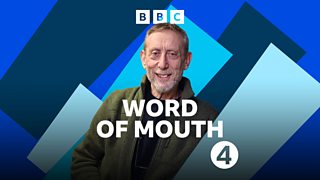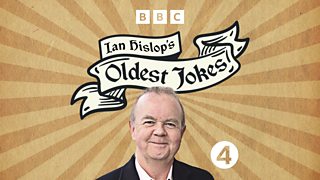Finding the Funny: How to Write Comedy with Isy Suttie

Isy Suttie is a comedy polymath. She’s an accomplished and celebrated stand-up, she writes acclaimed radio comedies, she’s a successful comic novelist, a brilliant and hilarious film and TV actor – and she’s even mastered the tricky feat of composing genuinely funny comedy songs.
There’s no one better to teach Word of Mouth’s Michael Rosen the fundamentals of comedy writing and share her own philosophy of funny. Isy joined Michael to impart her vision for bringing the laughs.

Less is More
When she was writing her Radio 4 show Love Letters, Isy resisted the temptation to clog up the comedy with as many jokes as possible and instead focused on the language and cutting back as much as possible. “I got very particular about getting the lines right,” she told Michael on Word of Mouth. “Paring it down as much as I could, so I could make it as pure as possible.” Giving the comedy space to breathe is important, even if it means losing solid gags.

Get Technical
While giving the comedy room to grow is important, rhythm and texture is also vital. And on occasion, it requires the sort of precision usually associated with some complicated maths problem. In writing for radio, Isy appreciated the importance of paring down the lines, but also inserting funny moments at exactly the right time. She told Michael: “Maybe there’s too much in there without a laugh and you need something to puncture a moment. It can get quite technical like that.”
Some Words are Funnier Than Others
As well as paring back and precision, word selection is also a formidable comedy tool. As Isy tells Michael: “Consonants are funnier than diphthongs or open sounds, especially at the ends of words.” So, as Isy states, "he gave me a black ashtray" isn’t as funny as "he gave me an ashtray that was black." With the hard "K" sound at the end of the phrase: “It feels like it’s ended and it’s sealed and it’s done.” Isy also extends this to numbers, believing that 80,373 is funnier than 370. “There’s something funny about how specific I’m being.”

Build Character
For Isy, identifying the voice of the character helps her to visualize them and present a fully rounded individual to the audience. Whether that voice is a man with a northern accent or the geeky tones of a bird sanctuary employee or her own mum, once she can hear them in her head, she can put them down on paper. And then, once they are there and speaking to her, she can delve deeper into their individual personalities. “You have to find the vulnerability and humanity within each character,” she told Michael.
It’s very important to be low status. You’re like a biblical character bringing the news.
Assimilation is Good for Comedy
As a youngster, Isy found that, as a naturally shy person, making people laugh was a way to feel included. “If I was making people laugh or I was laughing, I felt everything was all right. And I think, to an extent, I still feel that.” Isy realised that this kind of pressure naturally led to comedy, whereas comfort and security can make finding the funny harder.
Pain is Good
Mining a rich vein of pain and discomfort is another important component in Isy’s comedy arsenal. As she told Michael: “It’s very important to be low status. You’re like a biblical character bringing the news.” In stand-up, rather than hectoring the audience and lecturing them about a situation, by opening up and showing your vulnerability and pain, it’s more inclusive, especially if you focus on the minutiae of life. “The more specific you are, the more universal it is. Which seems like a paradox."

Somebody in my dream corrected "who" to "whom"
What makes it funny when your "pedantic subconscious" intervenes.
Find Your Comedy Comfort Zone
Matlock, her hometown, features heavily in Isy’s comedy. And she admits that she could be accused of going to that specific comedy source a little too often. For the second series of her Radio 4 comedy Love Letters, she decided to avoid Matlock altogether and set it in London. But it just didn’t work. “I felt like there was no heart to it,” she told Michael. Instead, she started to write about Matlock once more. “Suddenly it felt like I had a right to write about those characters.” For that particular project, identifying what made the show work superseded the urge to try something different.
Futility is Funny
Isy talks about a dream she had where she used the word "who’" and is then corrected by someone who tells her it should be "whom". She recognises that the reason this is funny is because dreams are the place where any fantastical event is allowed to be occur, but on this occasion, someone steps out of this fantasy realm to be overtly pedantic. “It’s futile, it doesn’t matter and I think that’s why it’s funny.” It also reflects Isy’s observation that specificity and focusing on the mundane is the path to comedy gold.
-
![]()
Listen to Word of Mouth: Writing Comedy with Isy Suttie
Isy Suttie is an actor and comedian best known for her role in Peepshow and her one woman show Love Letters on Radio 4 as well as many other shows and podcasts. Here she talks to Michael Rosen about writing her comedy and what informs it.

Comedy on Radio 4
-
![]()
The News Quiz
Topical panel quiz show with Andy Zaltzman taking its questions from the week's news stories.
-
![]()
Mark Steel's In Town
Comedian Mark Steel visits towns across the UK, meets the locals, and creates a stand up show for them - and us - about the town.
-
![]()
The Skewer
A twisted comedy treat. Jon Holmes brings you the week's biggest stories like you've never heard them before. The news remixed. Welcome to The Skewer. Headphones on.
-
![]()
Ian Hislop's Oldest Jokes
With the help of contemporary comedians, scholars and an appetite for enduring humour, Ian Hislop tracks down the earliest examples of enduring British comedy tropes and jokes.





